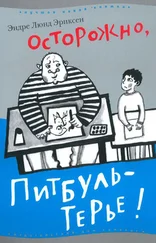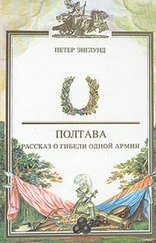Another effective deterrent was the Bolsheviks’ perverted take on the Bible’s original sin: if you make any trouble, your children will be denied access to higher education and a decent job. So, from a human point of view, it was maybe not exactly heroic, but at least quite understandable that most Czech parents thought twice before stepping out of the line. In that respect, the playwright Arnošt Goldflam probably spoke for a majority of his countrymen when he stated after the Velvet Revolution that “the best thing with democracy is the freedom not to be brave”.
What about those not-too-numerous Czechs who defied the widespread opportunism and put their health, family, future and even lives at stake by speaking out for freedom? For the former political prisoners, it’s utterly disheartening that several known torturers (among them Alois Grebeníček, father of the Czech Bolsheviks’ current boss) have not been taken to court, but are allowed to spend their last years living happily with their families.
So far, only one of the hard-liners who formally “invited” the Soviet Union to invade his country in 1968 has been tried and sentenced for sabotage. Among the younger generation of apparatchiks, Miroslav Štěpán, Prague’s last and infamous party boss, is the only one who has served some time in jail.
This has both practical and morale-philosophical reasons.
Some of the former regime’s worst henchmen have gotten off by claiming that their poor health doesn’t allow them to stand trial. In other cases evidence have been destroyed, or witnesses have died. And then there was the urge to heal the nation’s wounds as soon as possible; Václav Haveland the Charter 77 dissidents, who dominated the political leadership that emerged in late 1989, preached the gospel of reconciliation. “We are not like them” (i.e., the communists) and “Truth and Love shall prevail over Lies and Hate” were their main slogans. Consequently, this made anyone who was eager to punish the communists, look like either a communist himself, or an ardent supporter of lies and hate.
While the democratic political parties discuss whether to draw a thick line between the totalitarian past and the present, the Communist Party itself seems to have recovered from the giant blow it received in 1989. Contrary to their comrades in most other ex-East Bloc countries, the Czech Bolsheviks have not recycled themselves into a modern labour party (that space was taken by the Czech Social Democratic Party early in the 1990s), but only moved their ideological temple from Moscow to Havana and Peking.
Cleverly, the comrades have distanced themselves from all the “bad things” that happened prior to 1989, while they take full responsibility for all the “good things” that were done, such as securing everyone some kind of job.
Although party members have fled by the hundreds of thousands, the Communist Party unfortunately still has to be reckoned with in Czech politics. In the parliamentary elections in 2002 (where more than half the electorate decided to stay at home), they were supported by some 18 percent of voters. Yet the comrades have one serious problem. The vast majority of their supporters are pensioners nostalgic about the past, and only some 1,200 of their 101,000 members are under the age of 30.
The good news is therefore that hard-core communism as it is still practiced by most of the Czech comrades, will sooner or later meet the same end as the dinosaurs. The bad news, though, is that the Czech Republic even after their extinction will need time to cope with the legacy of their 41 year long tyranny.
When a Czech, in the communist era, went to see the doctor it was not entirely unthinkable that he brought a bottle of liqueur with him discreetly hidden in his pocket. The booze was not necessarily meant as a means to shorten the dreadful waiting time. Instead, it was solemnly presented to the state-employed medicine man as an expression of good will. As a result, the chances that the doctor would brush aside your problems as being “mere nerves” were considerably reduced.
The tradition of knowing how to look after oneself has deep roots all over Central Europeand dates back to the days of the Austro- HungarianEmpire (see: Bureaucracy). As one might expect, the sleazy and basically Byzantine communist regime didn’t exactly make things better. Corruption flourished at all levels of public life. In some instances — for example, when you wanted to rent a flat from the municipal authorities in your city — you wouldn’t even be considered a serious candidate if you didn’t hand over an envelope stuffed with korunas .
The Czechs are all too experienced and no-nonsense (see: Scepticism) to believe that the corruption problem would disappear with the communists. Therefore, nobody expected that the enormous privatisation of state industry that took place in the 1990s would come to pass without false steps. An American professor even joked that the best way, in which the Czechs could carry out the privatisation, was to put out all the lights in the country for half an hour...
Nevertheless, a decade and a half after the Velvet Revolution, millions of Czechs have an intense feeling that the country has utterly failed to cope with the communists’ sleazy legacy. Not only because of the appalling irregularities that accompanied the privatisation process in the 1990s, or the secret donations to the ruling parties, which were revealed in 1997 (see: Pepa from Hong Kong). The problem is that everyday bribery is, according to surveys, perceived to be as widespread as it was before 1989.
This is hard to believe. Bottles are no longer handed over to doctors (at least not as a rule). Municipal flats can be obtained without money-stuffed envelopes, and yes, the police are investigating accusations of corruption and bribe-takers are being convicted. Yet the situation is far from satisfying. According to Transparency International (TI), a nongovernmental organization which annually surveys how the spread of corruption among public officials and politiciansis perceived in 91 countries, it’s even grave.
Ranking the participants from countries where “corruption is non-existent” to countries where it is “widespread”, TI deemed the Czech Republic to be the world’s 54th least corrupt state in 2003. That result places the country between Bulgaria and Belarus, which most Czechs take as a deep offence (see: Balkans). And even worse: the Czech Republic has experienced a continuous slide downwards since 1997, when it finished in 27th place. While post-communist countries such as Hungary and Slovenia traditionally were considered to be more sleaze-prone than the Czech Republic, the situation is now the reverse.
There is, however, a light in the darkness. It may be that corruption is perceived as such a big problem in the Czech Republic partly because the media — rightfully — have been focusing heavily on it in recent years.
Although corruption represents an undeniable problem, its spread may, because of the media focus, seem bigger than it really is. And even better: after years of neglecting the problem, EU accession has prompted the government to take action to fight sleaze, for instance by introducing state provocateurs as a method to reveal corrupt civil servants.
Certainly, corruption can also be seen as a question of political culture. In that respect, many experts must admit that their prophecies from the early 1990s were wrong.
Post-communist Central Europe has not been threatened by a revival of nationalism, as they warned. Neither has any hard-line communist comeback happened. The major problem for these new democracies is corruption and its tentacles wrapped around politicians. In this respect, one can say that the Czechs, after the Velvet Revolution in 1989 made a historic leap out of Moscow’s sphere of power. But when it comes to corruption, it might seem that they landed in Calabria...
Читать дальше








![Theresa Cheung - The Dream Dictionary from A to Z [Revised edition] - The Ultimate A–Z to Interpret the Secrets of Your Dreams](/books/692092/theresa-cheung-the-dream-dictionary-from-a-to-z-r-thumb.webp)



